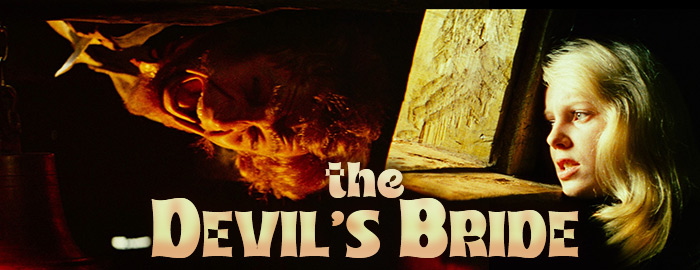
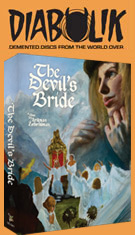

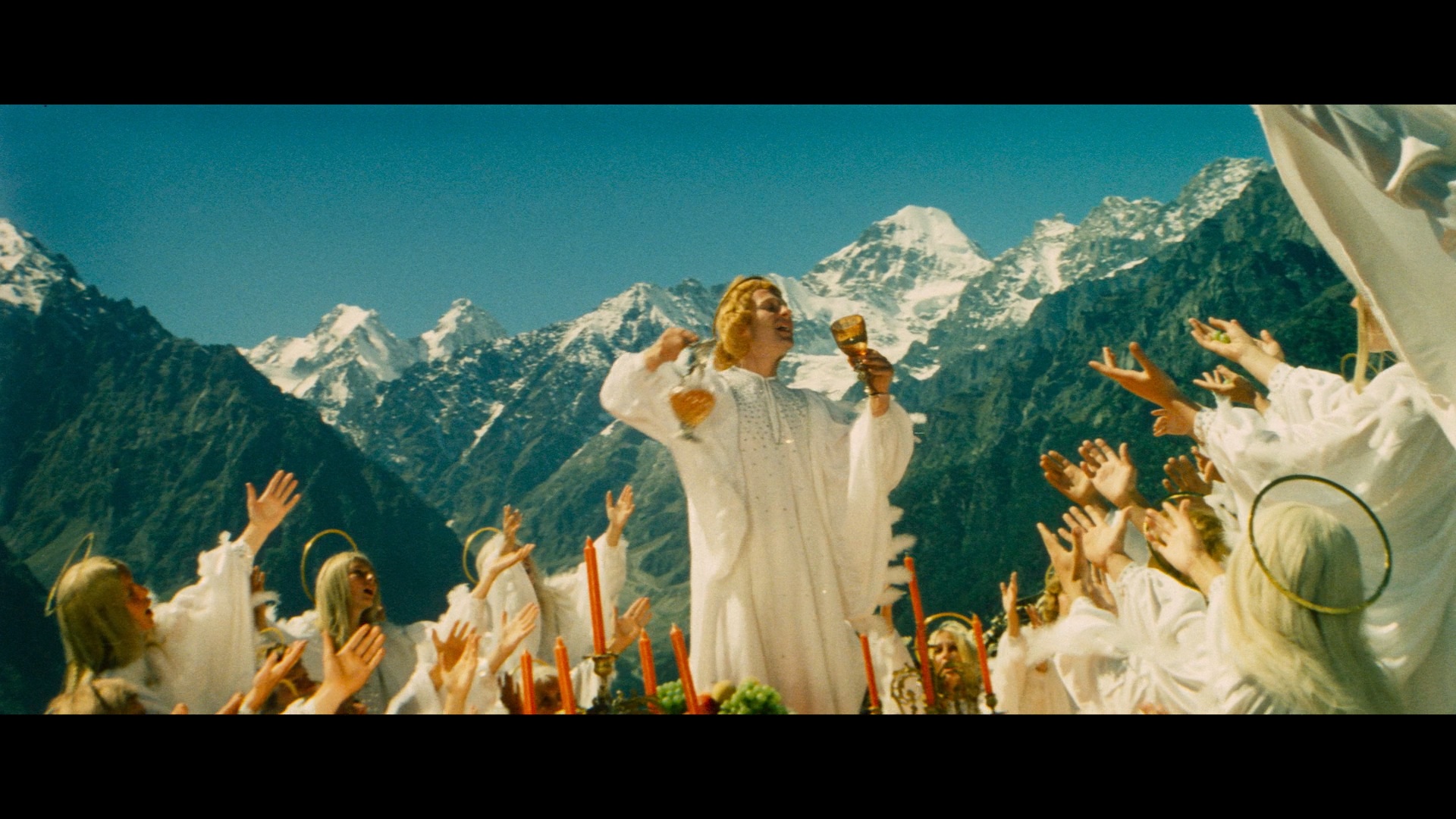 supernatural folk-rock musical? Continuing their track record of blowing viewers' minds with
supernatural folk-rock musical? Continuing their track record of blowing viewers' minds with 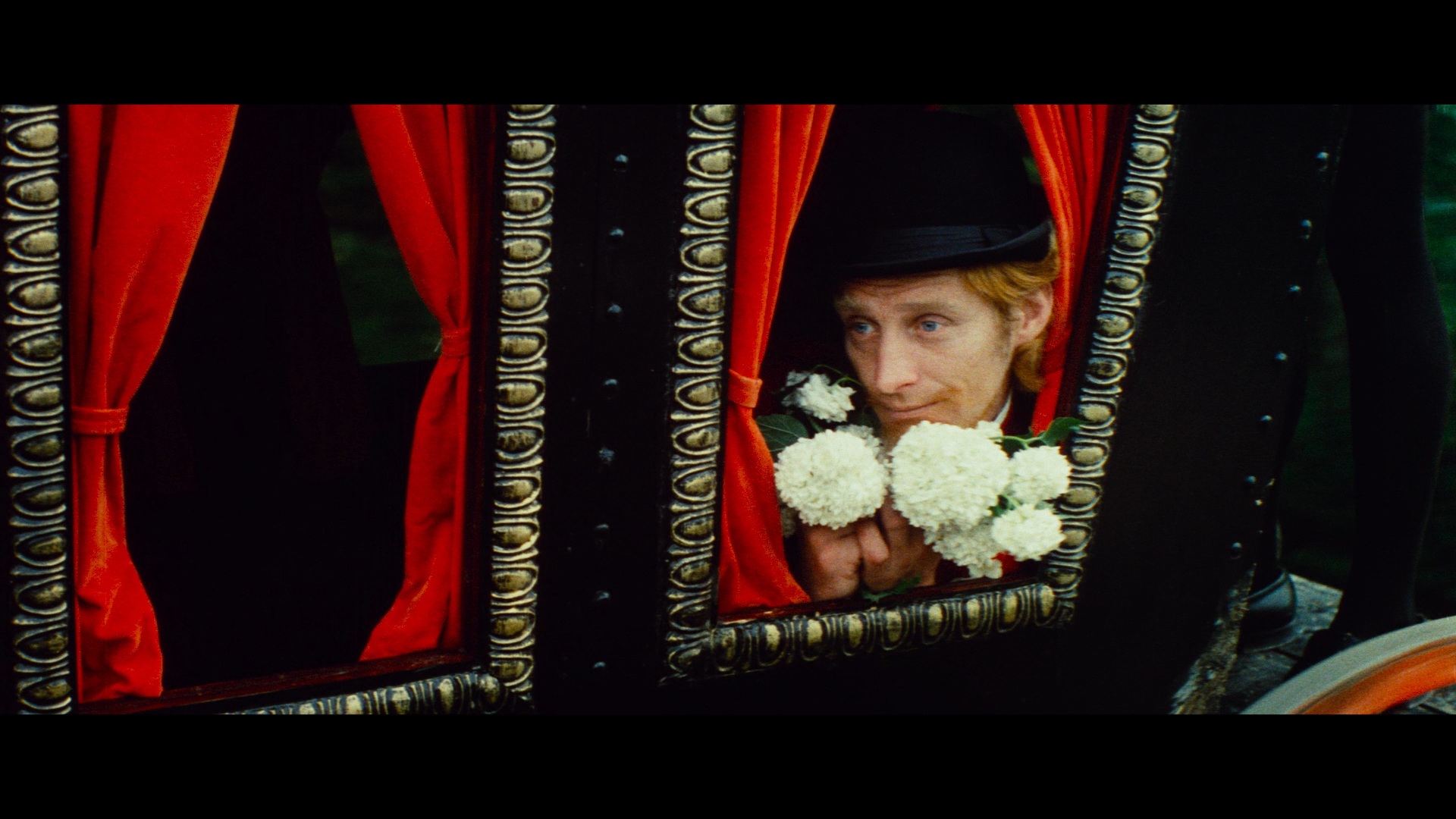 titles completely neglected in the U.S., Deaf Crocodile strikes again with The Devil's Bride (Velnio nuotaka), a completely sung feast for the senses clearly inspired by funked-up stage hit stampeding through Europe like Jesus Christ Superstar, Joseph and the Amazing Technicolor Dreamcoat, and La Révolution Française. Shot in scope and ultra-saturated color, it was a local hit and became something of a cult favorite among Soviet bloc audiences but has stayed under the radar pretty much everywhere else.
titles completely neglected in the U.S., Deaf Crocodile strikes again with The Devil's Bride (Velnio nuotaka), a completely sung feast for the senses clearly inspired by funked-up stage hit stampeding through Europe like Jesus Christ Superstar, Joseph and the Amazing Technicolor Dreamcoat, and La Révolution Française. Shot in scope and ultra-saturated color, it was a local hit and became something of a cult favorite among Soviet bloc audiences but has stayed under the radar pretty much everywhere else. 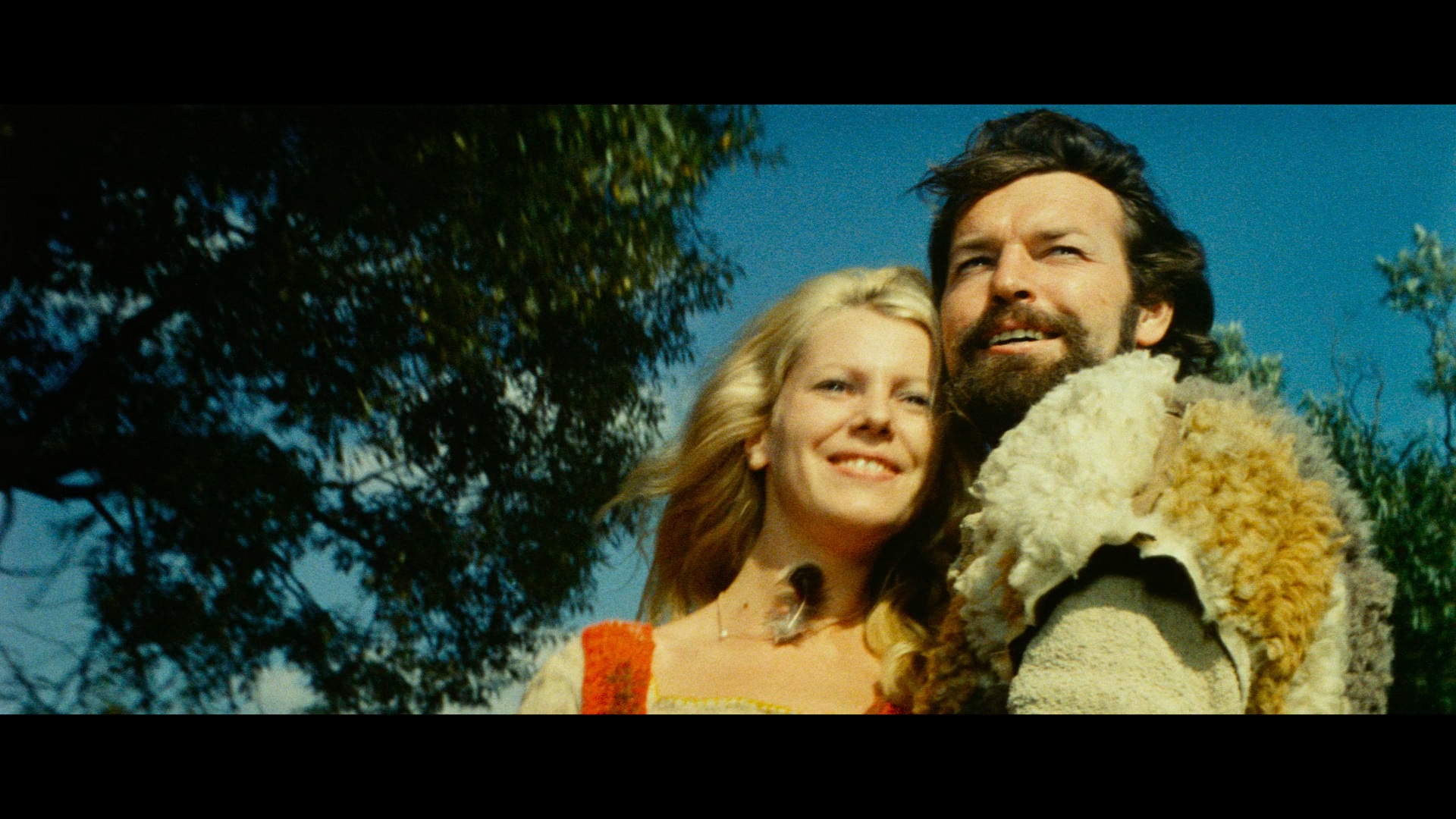 the conniving imp when she comes of age, but of course things get complicated when she ends up falling in love with bearded man of the
the conniving imp when she comes of age, but of course things get complicated when she ends up falling in love with bearded man of the 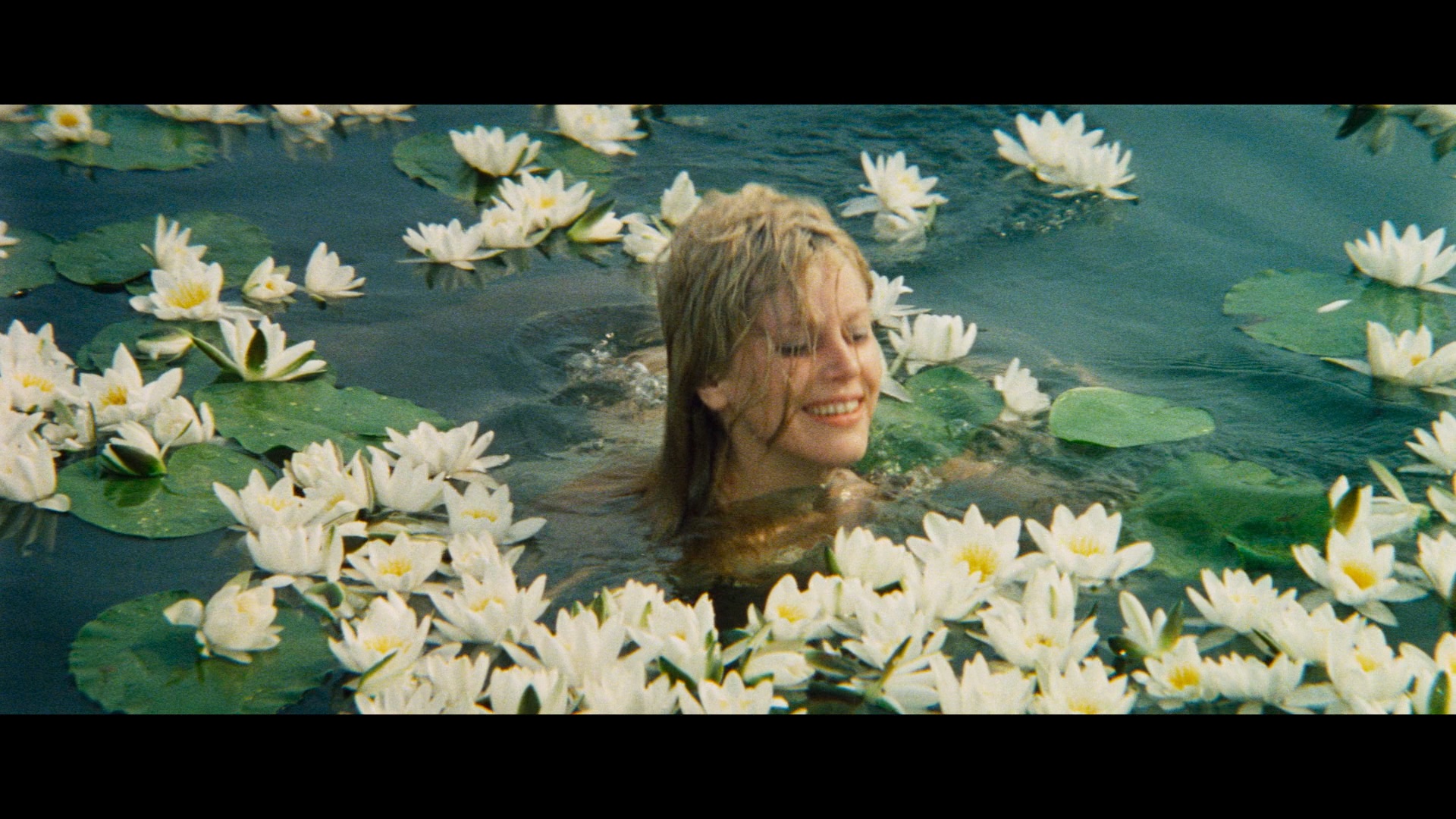 land Girdvainis (Adomaitis) -- all belted out in song.
land Girdvainis (Adomaitis) -- all belted out in song.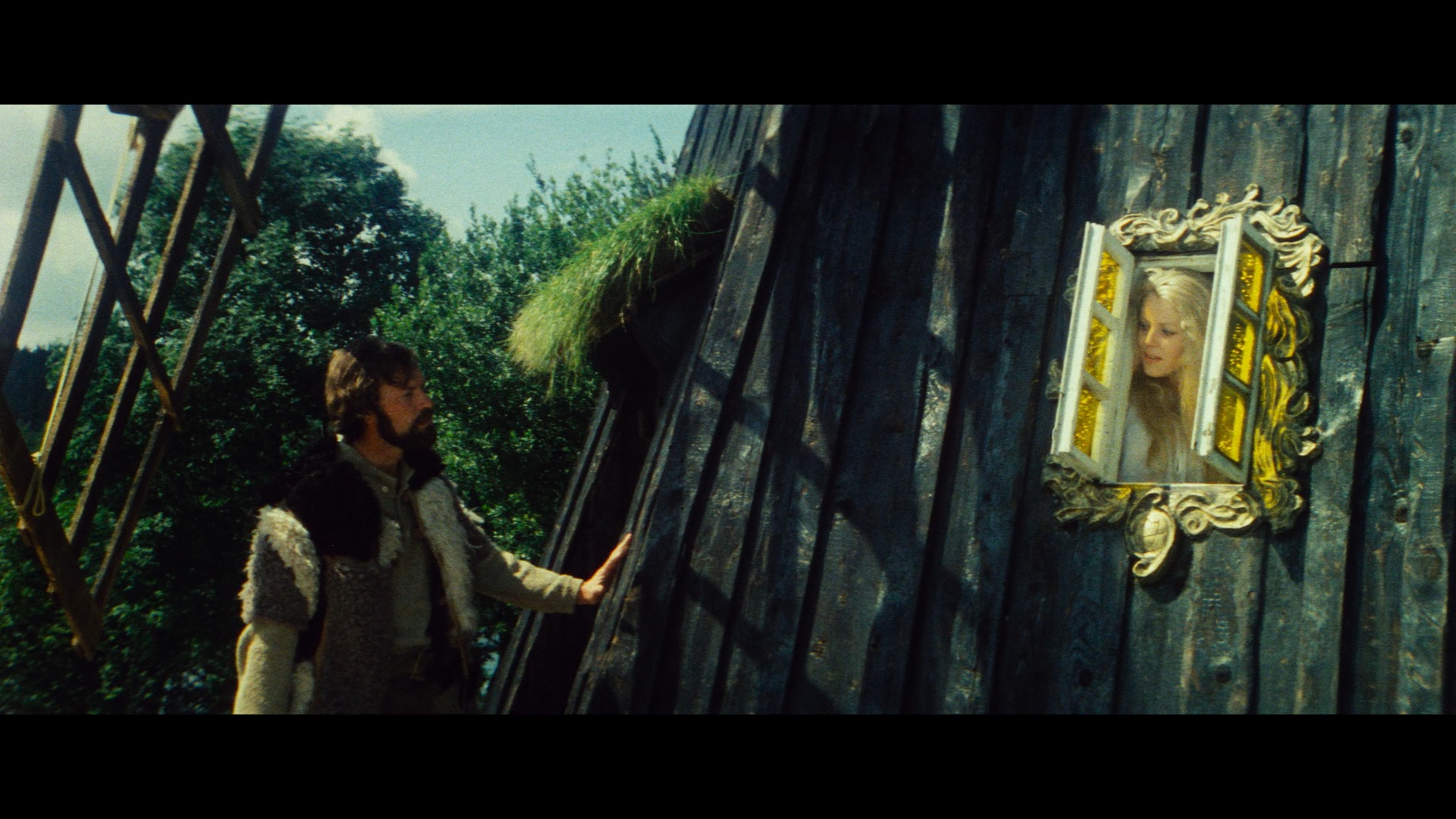 fine introduction from what is presumably an accurate restoration completed in 2015 overseen by the Lithuanian Film Centre. The source material is flawless here, and the very aggressive use of color and shadow makes sense given the subject matter. The DTS-HD MA 2.0 Lithuanian mono track sounds pristine and features good optional English subtitles. Though it isn't listed on the packaging, you also get a new audio commentary by Michael Brooke who delivers another thorough, impressive Eastern European track covering '70s Lithuanian cinema,
fine introduction from what is presumably an accurate restoration completed in 2015 overseen by the Lithuanian Film Centre. The source material is flawless here, and the very aggressive use of color and shadow makes sense given the subject matter. The DTS-HD MA 2.0 Lithuanian mono track sounds pristine and features good optional English subtitles. Though it isn't listed on the packaging, you also get a new audio commentary by Michael Brooke who delivers another thorough, impressive Eastern European track covering '70s Lithuanian cinema, 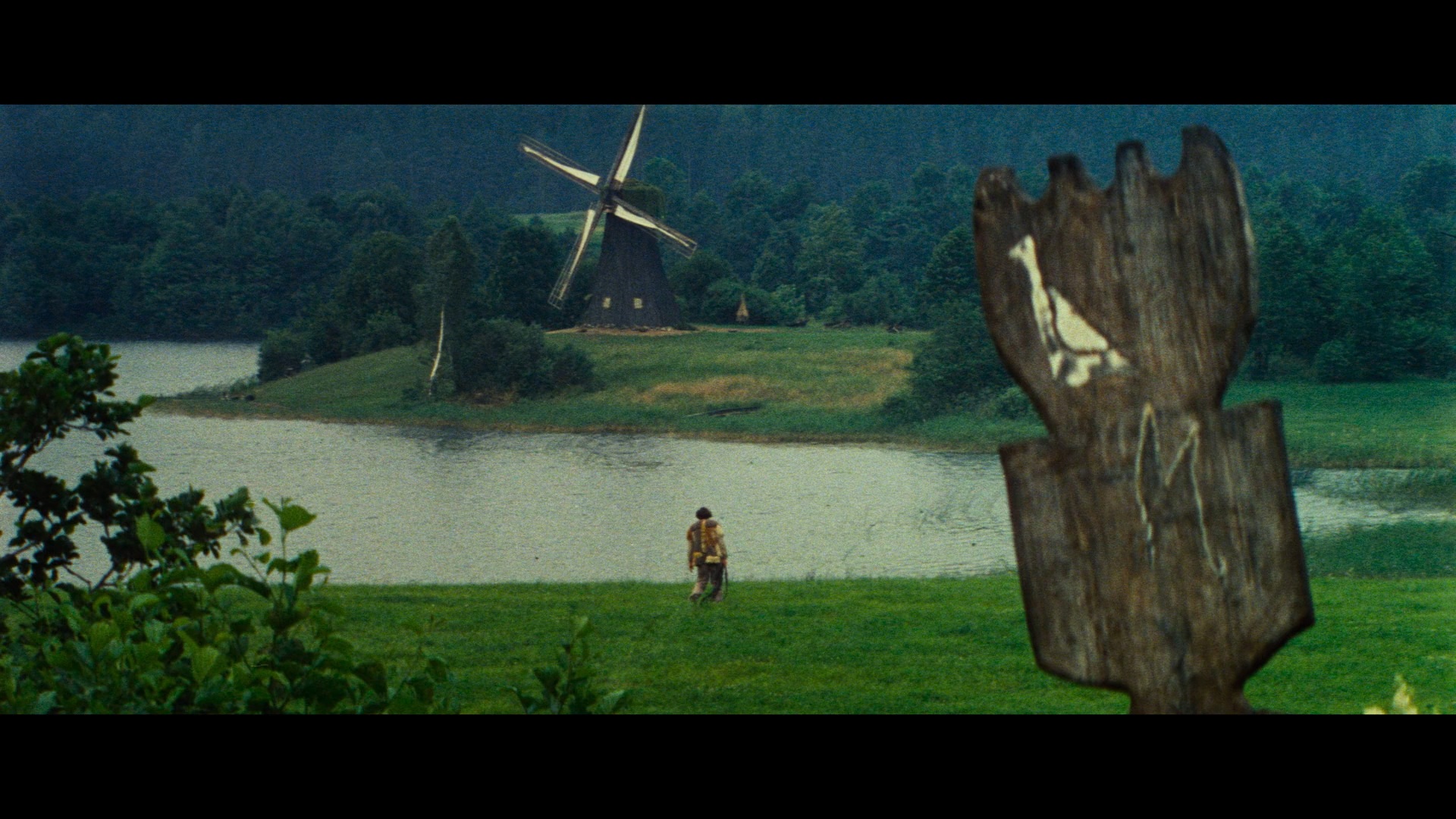 the collaborations of several parties involved, the amusing recurring elements like a golden toilet bowl, and the local cultural elements at play that could easily fly over your head. A new video interview with the director's daughter, Monika Edgar (54m30s), finds her chatting happily with Deaf Crocodile's Dennis Bartok about her father's career focusing on the decade leading up to this film, his affinity for fantastic and youth-oriented projects, the musical collaborators he recruited here, and his life after the release of his biggest hit. A new video interview with Lithuanian film critic Ieva Šukytė (53m27s), again with Bartok, covers the history of Lithuanian cinema (citing some of her favorite filmmakers, the landmark films she encountered growing up, and the tastes of local audiences) and this film in particular including its impact and major diversions from the source novel in terms of both plot and tone. Finally "The One Who Carries a Tune" (13m34s) is a new visual essay by Dr. Will Dodson and Ryan Verrill covering the background of Lithuanian's art culture, the 20th-century global events that affected it, and the role rock music played in its '70s identity which seeped into this film. The usual deluxe edition comes in a striking hardcase and features a substantial 60-page book with essays by Alexandra Heller-Nicholas and Walter Chaw breaking down the film's role in the director's filmography, its use of the devil in ways connected to other late '60s and '70s films, various musical connections, contributors to the soundtrack, and more, augmented with photos and a handful of beautiful production sketches.
the collaborations of several parties involved, the amusing recurring elements like a golden toilet bowl, and the local cultural elements at play that could easily fly over your head. A new video interview with the director's daughter, Monika Edgar (54m30s), finds her chatting happily with Deaf Crocodile's Dennis Bartok about her father's career focusing on the decade leading up to this film, his affinity for fantastic and youth-oriented projects, the musical collaborators he recruited here, and his life after the release of his biggest hit. A new video interview with Lithuanian film critic Ieva Šukytė (53m27s), again with Bartok, covers the history of Lithuanian cinema (citing some of her favorite filmmakers, the landmark films she encountered growing up, and the tastes of local audiences) and this film in particular including its impact and major diversions from the source novel in terms of both plot and tone. Finally "The One Who Carries a Tune" (13m34s) is a new visual essay by Dr. Will Dodson and Ryan Verrill covering the background of Lithuanian's art culture, the 20th-century global events that affected it, and the role rock music played in its '70s identity which seeped into this film. The usual deluxe edition comes in a striking hardcase and features a substantial 60-page book with essays by Alexandra Heller-Nicholas and Walter Chaw breaking down the film's role in the director's filmography, its use of the devil in ways connected to other late '60s and '70s films, various musical connections, contributors to the soundtrack, and more, augmented with photos and a handful of beautiful production sketches. ![]()